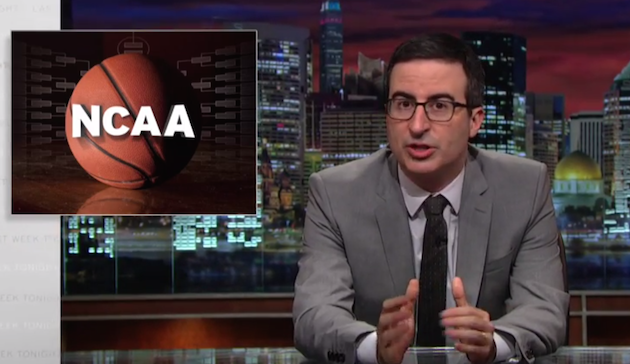As demonstrated by the Justice Department’s damning investigation into the Ferguson Police Department, police officials often rely on slapping hefty municipal fines to fund government. Such practices are rampant in towns across the country.
On the latest Last Week Tonight, John Oliver took on the issue with an in-depth report explaining how a petty traffic violation—a ticket some people can simply shrug off as a nuisance—can actually wreck the lives of society’s most vulnerable citizens, and sometimes even land people in jail.
“Most Americans drive to work,” he explained. “If you can’t do that, you’ve got a problem. In New Jersey, a survey of low-income drivers who had their license suspended found that 64 percent had lost their jobs as a result, which doesn’t help anyone. You need them to pay their fine but you’re taking away their means of paying it. That’s the most self-defeating idea since gay conversion camp!”
While Oliver says he’s not advocating for minor offenses to go without punishment, people should have the “right to fuck up once in a while without completely destroying our lives.”
Watch below:












